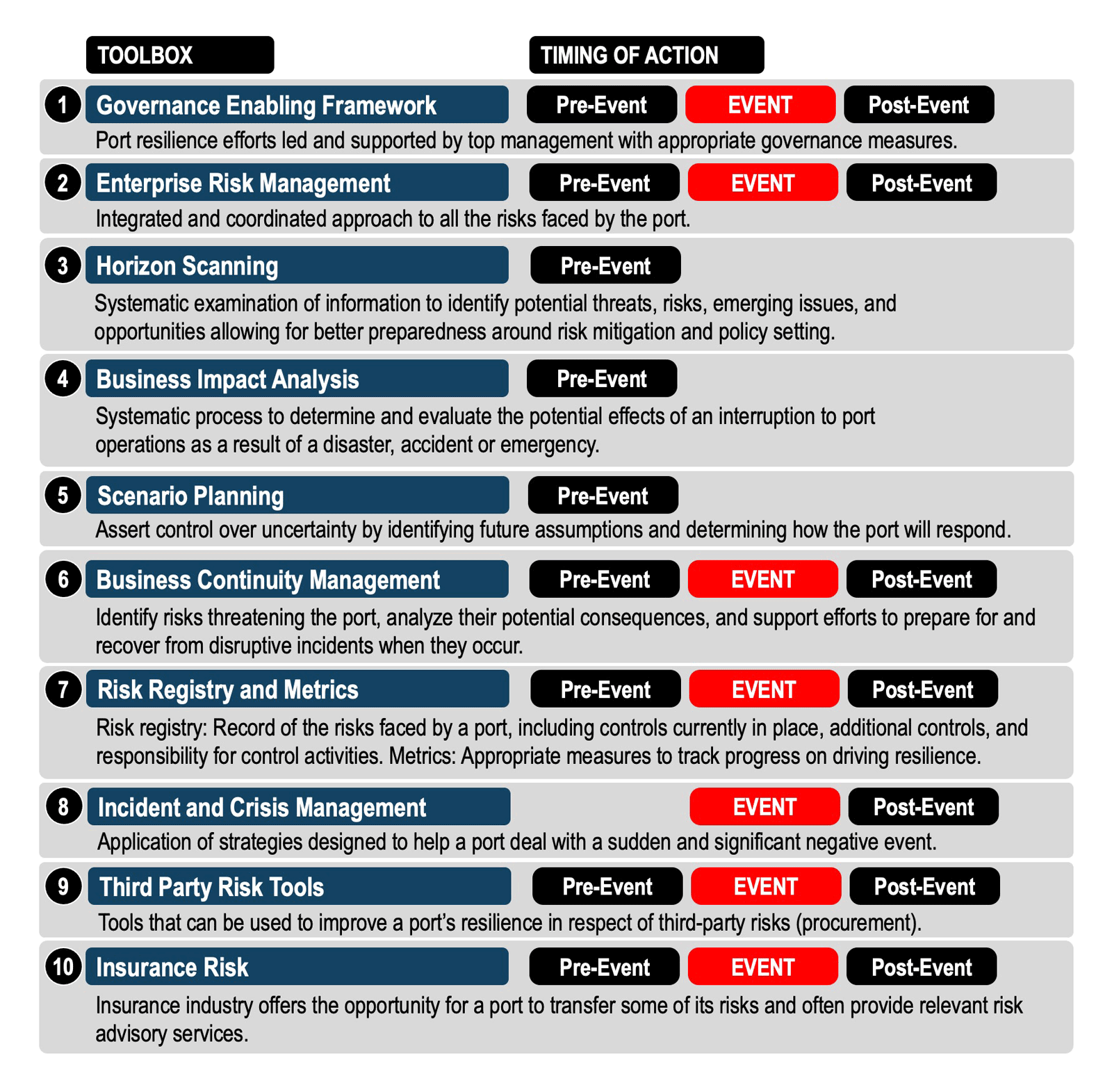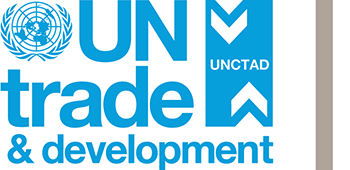An essential element for the successful management of port resilience is learning from previous events. These may be derived internally and externally from port organizational practices. Changes, such as new infrastructure investments, can be used to promote appropriate resilience improvements. Resilience can be instrumentalized to create value and competitive advantage through an improved service proposition, and not simply as a strategy to deal with a downside risk. Achieving these goals requires a toolbox which provides guidance to port stakeholders and actors to help them build port resilience in identifying, assessing and managing risks in a practical fashion, and devising coherent port risk assessment and management responses and mitigation strategies.
Port resilience-building efforts must be linked to a port’s core values and mission. A combination of risk management and resilience-building tools enables ports to achieve an integrated understanding of organizational exposure, preparedness, absorption and responsiveness capacity to reduce the likelihood and magnitude of potential and actual impacts arising from disruptions. Franken, A. et al (2014) referred to resilient organizations as having the following capabilities and attributes:
- They prepare and anticipate problems before they build up;
- They build in structural flexibility to respond to both adverse and beneficial changes;
- They break down silos to allow risk information to flow freely and prevent risk blindness;
- They implement rapid response capabilities to avoid incidents escalating into crises; and
- They learn from previous mistakes made by themselves and others.
Figure 22 features a Port Risk Management and Resilience-Building Toolbox, which includes relevant risk assessment and management approaches, as well as tools and methods to enhance and build port resilience. Many come into play pre-event, during an event, or post-event. In some cases, these tools intervene at all stages of a disruption cycle (e.g. ERM and BCM).
Figure 22: Port Risk Management and Resilience-Building Toolbox

